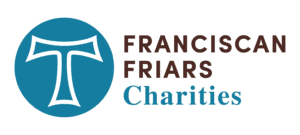
Father John Cella, OFM, is in charge of an organization that takes visitors throughout Europe and North America. But he is quick to point out that he doesn’t lead tours. He is in the pilgrimage business.
There’s a big difference.
Fr. John, who also ministers as a canon lawyer, seminary professor, and parish priest, has been director for Franciscan Pilgrimage Tours for the past 20 years. Last year, the organization, based in Franklin, Wisconsin, took 700 people over 35 trips. All were to places significant in Franciscan history, in particular Assisi and Rome, following in the footsteps of Francis, as well as to cities such as Budapest and Paris, following in the footsteps of Francis’ followers. Pilgrimage Tours also lead visits to the California missions and Our Lady of Guadalupe in Mexico City.
The group previously ran tours to the Holy Land that are now on hold due to the ongoing conflicts there.
Tours have their niche. But “pilgrims are on a time of prayer, reflection and to take time in the sacred places,” said Fr. John, with the focus on “a time to learn about the spirituality of Francis and Clare.”
Pilgrims to Assisi and Rome go to the places where Francis trod. Prayer, ritual, and study are all part of the experience. Not all is serious, however, as pilgrims also partake in meals together and get a taste of the local culture.
Franciscan Pilgrimage Tours began 51 years ago to provide Franciscan novices the experience of Francis they learned in classrooms. The pilgrimages expanded as they became more popular, incorporating older friars and Religious Sisters from communities which date their origins to St. Clare, Francis’ mission companion.
Now the trips are extended to lay people, including those who work in Franciscan institutions, such as high schools, colleges, parishes, and hospitals. They are led by Franciscan scholars, some of whom are published authors. An added dimension is to include leadership of both men and women, enhancing the dialogues about the different spiritual perspectives of Francis and Clare.

Frequently, pilgrims who return find that the experience is more than a long-forgotten vacation. The encounter with Francis and Clare and their companions transforms lives.
“It’s about how they look at life,” said Fr. John. “They are changed by Francis. He was a rich person, had a lot of things going for him. Then he had an experience of a leper and God.”
Testimonials indicate the impact of the pilgrimages.
“We returned enlightened and fired by the flame of the Holy Spirit. What a Pilgrimage! The mantras are still echoing in my heart, particularly the melody we chanted at the eucharistic prayer. I can’t seem to let go of it!” noted one pilgrim.
Another, an academic at a Franciscan college, said she welcomed the openness and atmosphere of the pilgrimage.
“I was initially nervous because I am not Catholic. I thought I might feel out of place or might feel marginalized. I felt nothing like that! In fact, I found kindred spirits who were also worried initially. History combined with spirituality made for an amazing, soul-searching adventure,” noted Pauline Hoffman, dean of the School of Journalism at St. Bonaventure University.
More sites will be offered this year.

Included is a trip to Ireland. Francis died in 1226, and within two years, Franciscans arrived in Ireland, creating a community in Cork. Pilgrims will tour sites such as Trinity College in Dublin, Muckross Abbey in Killarney and explore together the contrasts and similarities between Celtic and Franciscan spirituality, including a focus on both traditions’ reverence for Creation.
Other programs include trips for high school students, including virtual tours of Assisi that began during Covid as both travel and classroom education were restricted. Another pilgrimage focuses on military veterans, who reflect on the transition that Francis made from his own military career to civilian life. That journey, said Fr. John, can provide healing to those veterans who struggle with wartime experiences.
Franciscan Pilgrimage Programs rates and schedules can be obtained at PO Box 321490, Franklin, Wisconsin, via phone at 414-427-0570 and via email at info@franciscanpilgrimage.com.

